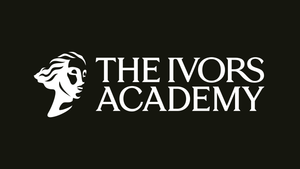The Ivors Academy has launched an ‘End Ghostwriting’ campaign, seeking to end the industry practice where - when music is created for audio-visual productions, including films, TV programmes and games - some contributors are not credited. Which means their work is not publicly acknowledged and they may lose out on future royalties generated by the music.
The new campaign is asking lead composers on audio-visual projects to pledge to ensure that everyone involved in those projects is always credited, and listed on relevant cue sheets, the documents used by the industry to identify music in films and TV when future royalties need to be paid.
A cue sheet is also provided when work is submitted for consideration for the annual Ivor Novello Awards and, moving forward, composers will be asked to confirm that that cue sheet lists everyone “who wrote a cue from scratch or made a significant new creative contribution”.
Sheridan Tongue, who has composed music for ‘Silent Witness’ and ‘Wonders Of The Universe’ and is a member of The Ivors Academy’s Media Council, says that the campaign is about “drawing a line and saying that from this point forward, ghostwriting will no longer be accepted as standard practice”.
“Our focus is on looking ahead and working collectively to create a fairer, more transparent and respectful industry for everyone”, he goes on, concluding, “No composer should be invisible on a production”.
Film composer and Ivors board member David Arnold, probably best known for his work on the Bond movies, adds that audio-visual composers utilising the support of other creators is now more common, making this initiative even more important.
“Our industry is changing rapidly", he explains. "Budgets and schedules are becoming more compressed and workloads are becoming more complicated to manage. So sometimes we need help. This campaign is here to ensure that help doesn’t go unrecognised and unrewarded. It’s only decent and it’s only fair".
The ‘End Ghostwriting’ campaign joins other industry initiatives seeking to ensure all music-makers are credited for their work in as many places as possible. The Ivors Academy has long run the ‘Credits Due’ campaign, and there have been various other initiatives to improve music creator credits in the streaming space.
For those working behind the scenes in music, including songwriters, composers, producers, mixers and mastering engineers, these credits are important for building an industry profile and securing future work. It can also impact on royalty payments, especially within the collective licensing system. Plus copyright law provides creators with a moral right to attribution.
The Ivor Academy's latest campaign has three main requests of lead composers on audio-visual projects. First that they be fully transparent with the producers of audio-visual productions about who will compose music they are commissioned to create.
Second to ensure that all contributing composers are credited on cue sheets, on screen where possible, and on the IMDb platform. And finally to accurately submit work for awards consideration that fairly credits everyone involved in the composition.

